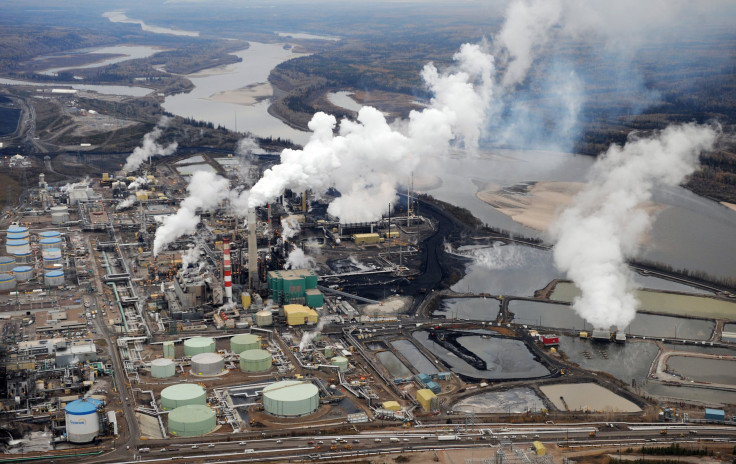Denver City Sprayed With Hydrogen Cyanide — 8.5 Tons Every Year

According to a Denver Post report on April 18, Suncor Energy oil refinery is spewing 8.5 tons of invisible hydrogen cyanide gas a year over low-income north Denver neighborhoods.
Hydrogen cyanide is a colorless gas smelling faintly like almonds that at high exposure levels attack the brain and heart, causing rapid breathing, convulsions and loss of consciousness, according to the Agency for Toxic Substances and Disease Registry. Lower level exposures are related to breathing trouble, headaches and enlarged thyroid glands. The Organization for the Prohibition of Chemical Weapons, established under the 1997 global chemical weapons convention, classifies hydrogen cyanide as a chemical weapon.
Suncor refinery emits hydrogen cyanide from a fuel catalytic cracking unit which is primarily used in producing additional gasoline in the refining process which is part of the company’s crude oil processing. These units break down hydrocarbons to produce the gas and diesel Suncor sells as fuels in Colorado and the region. Suncor is not the only refinery which emits hydrogen cyanide.
Suncor refinery is one of the largest sources of air pollution in the Denver metropolitan area. State air quality regulators since 2013 have begun at least five cases against Suncor seeking penalties for emissions of sulphur dioxide and other toxic gases, and they have ordered Suncor to correct deficiencies. In 2012, state regulators fined Suncor $2.2 million for violations related to benzene air pollution which referred to the causation of eye, skin and lung irritation in short term and blood disorder in the long term. In 2015, state regulators ordered Suncor to fix other pollution problems detected in 2013 and 2014. Suncor at one point negotiated a deal to avoid admitting law violations in return for paying a $214,050 administrative penalty, according to the report from the Denver Post.

The Colorado Department of Public Health and Environment air quality control officials in January approved a change to Suncor’s air pollution permit that exempts the company from a federal requirement to disclose hydrogen cyanide emissions. The officials set an emission limit of 12.8 tons a year which is higher than the 8.5 tons Suncor reported it emits.
According to the Denver post report, a malfunction triggered after a power outage in October 2016 at Suncor refinery produced an orange cloud and raised health concerns, prompting reverse-911 notification of residents. A company spokeswoman in the aftermath said no toxic chemicals were detected in surrounding neighborhoods. The documents filed with state regulators revealed the refinery belched 75,600 pounds of sulphur dioxide, 150 times higher than the Colorado state’s 500 pound threshold for launching and investigation.
Community groups in Denver neighborhoods like Globeville, Swansea and Elyria petitioned the Environmental Protection Agency to require Colorado health officials to set a limit that protects the people from the neighborhoods and require Suncor to disclose emissions of the gas to local emergency responders.
© Copyright IBTimes 2024. All rights reserved.











